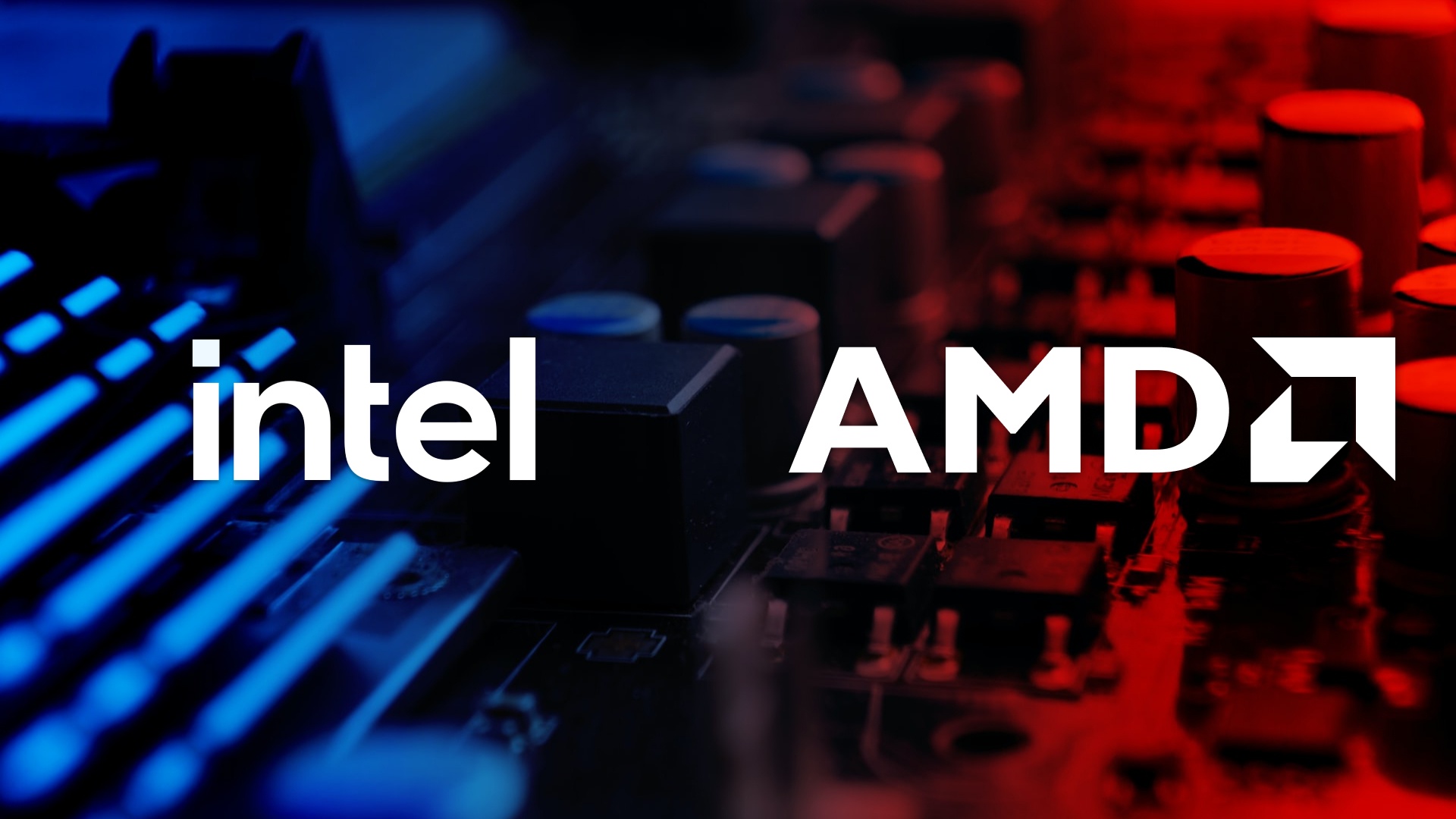
Intel vs AMD: A Comprehensive 2024 CPU Comparison
When building or upgrading a PC, choosing the right processor is crucial. Intel and AMD dominate the market, offering distinct benefits for various use cases. This article covers all essential aspects to help you decide which CPU brand fits your needs—whether it’s gaming, content creation, efficiency, or value.
🔍 Performance Breakdown: Intel vs AMD
1. Gaming Performance
- Intel:
Intel’s 14th Gen Core i9-14900K and i7-14700K dominate in gaming with high single-core clock speeds, which translates into smoother gameplay at higher frame rates. Games like CS:GO and Valorant, which rely on single-threaded performance, run better on Intel CPUs. - AMD:
AMD’s Ryzen 9 7950X3D introduces 3D V-Cache technology, which provides better performance in games like Civilization VI and Factorio. However, Intel still edges out AMD in most titles when raw frame rates matter.
Winner: Intel (Overall gaming leader, though AMD offers competitive performance in specific games)
2. Productivity and Content Creation
- Intel:
Intel excels in light tasks such as photo editing and office applications, thanks to its high clock speeds and efficient E-cores (Efficient cores). This makes it ideal for content creators who do a mix of workloads. - AMD:
With more cores and threads, AMD’s high-end chips like Ryzen 9 7950X outperform Intel in tasks such as 3D rendering, video editing, and multi-threaded workloads. If your work involves Blender or Adobe Premiere Pro, AMD offers better performance in extended sessions.
Winner: AMD (Best for multi-threaded and heavy content creation)
3. Power Efficiency and Heat Management
- AMD:
AMD’s Zen 4 architecture provides superior power efficiency, especially under full load. CPUs like the Ryzen 7 7800X3D deliver top-tier performance while consuming less power, making them ideal for small builds with limited cooling. - Intel:
While Intel’s 14th Gen processors deliver exceptional performance, they tend to consume more power under load. This can lead to higher temperatures, meaning you’ll need better cooling solutions.
Winner: AMD (For lower power consumption and heat output)
4. Integrated Graphics Comparison
- AMD:
AMD’s Ryzen 7040 APUs offer the best integrated graphics, capable of running modern games at 1080p without a dedicated GPU. They’re perfect for budget gamers or compact builds. - Intel:
Intel’s Xe integrated graphics have improved over the years but still lag behind AMD’s APUs. Intel-based systems often require a discrete GPU for gaming.
Winner: AMD (For better iGPU performance)
5. Future-Proofing and Platform Features
- AMD:
AMD offers full PCIe 5.0 support across both GPUs and SSDs, ensuring better compatibility for future hardware. Additionally, AMD’s AM5 socket will receive support for multiple future generations, making it a safer long-term investment. - Intel:
Intel’s 14th Gen CPUs support PCIe 5.0 GPUs, but storage lanes are limited to PCIe 4.0. Intel’s platforms offer DDR4 support alongside DDR5, providing more flexibility, especially for budget-conscious users.
Winner: AMD (More future-proof with PCIe 5.0 and extended socket support)
6. Pricing and Value for Money
- AMD:
AMD’s CPUs often deliver better price-to-performance ratios, especially in the mid-range and high-end segments. Models like the Ryzen 5 7600X offer excellent performance for their price. - Intel:
Intel retains its dominance in the budget segment, offering lower-cost CPUs that still perform well. Its DDR4 compatibility can help keep build costs down.
Winner: Tie (AMD for high-end value, Intel for budget builds)
7. Laptop Processors: AMD vs Intel
- Intel:
Intel dominates the premium laptop market with its Alder Lake and Raptor Lake processors, found in many ultrabooks and gaming laptops. These processors provide excellent performance and power efficiency. - AMD:
AMD’s Ryzen 7000 series mobile chips focus on better battery life and efficient performance. Their integrated GPUs also make them ideal for laptops without discrete GPUs.
Winner: Intel (For high-end laptops), AMD (For affordable, long-battery laptops)
Use Cases: Which CPU Should You Choose?
Best for Gaming: Intel
- If you’re focused on raw gaming performance, Intel’s 14th Gen Core i7/i9 processors are the better choice.
Why? Better FPS in most titles.
Best for Content Creation: AMD
- AMD’s multi-threaded power makes it a better choice for video editing, 3D modeling, and heavy workloads.
Why? More cores and threads at a competitive price.
Best for Budget Builds: Intel
- Intel’s i5 and i3 processors with DDR4 support make for budget-friendly PCs.
Why? Cheaper platform and memory options.
Best for Future-Proofing: AMD
- With PCIe 5.0 support and the AM5 socket, AMD is the better investment for future upgrades.
Why? Extended compatibility and features.
Conclusion: Who Wins the AMD vs Intel Battle?
- Overall Winner: It depends on your needs. Intel wins in gaming and light productivity, while AMD takes the lead in content creation, efficiency, and long-term upgrades. Both companies are at the top of their game, and your decision should align with your specific needs, whether it’s gaming, productivity, or value for money.
Buy the Latest CPUs
Intel Core i9-14900K
Buy on Amazon
AMD Ryzen 9 7950X
Buy on Amazon
AMD Ryzen 7 7800X3D
Buy on Amazon
Intel Core i7-14700K
Buy on Amazon
This article ensures a detailed understanding of how Intel and AMD stack up against each other in 2024, helping you make the right choice for your needs!
























Post Comment